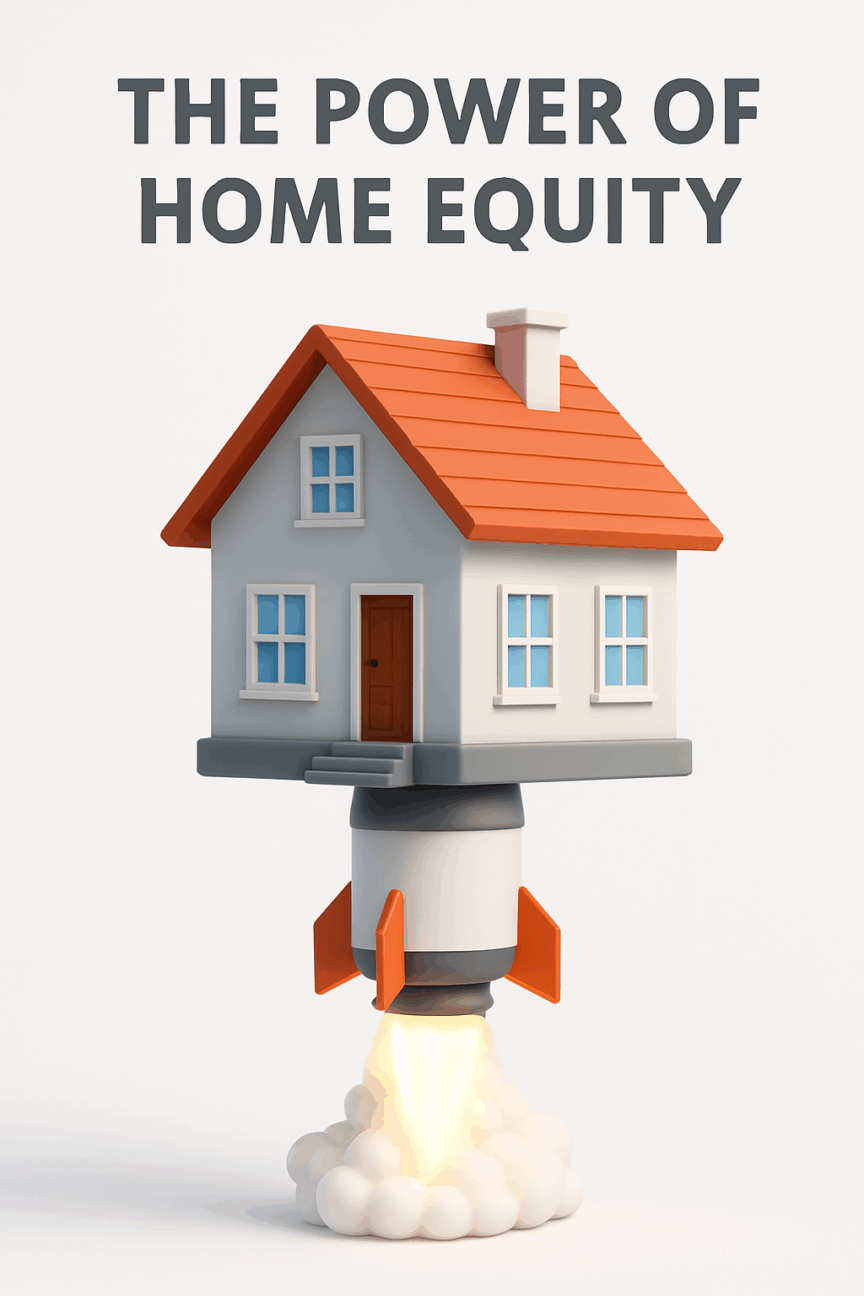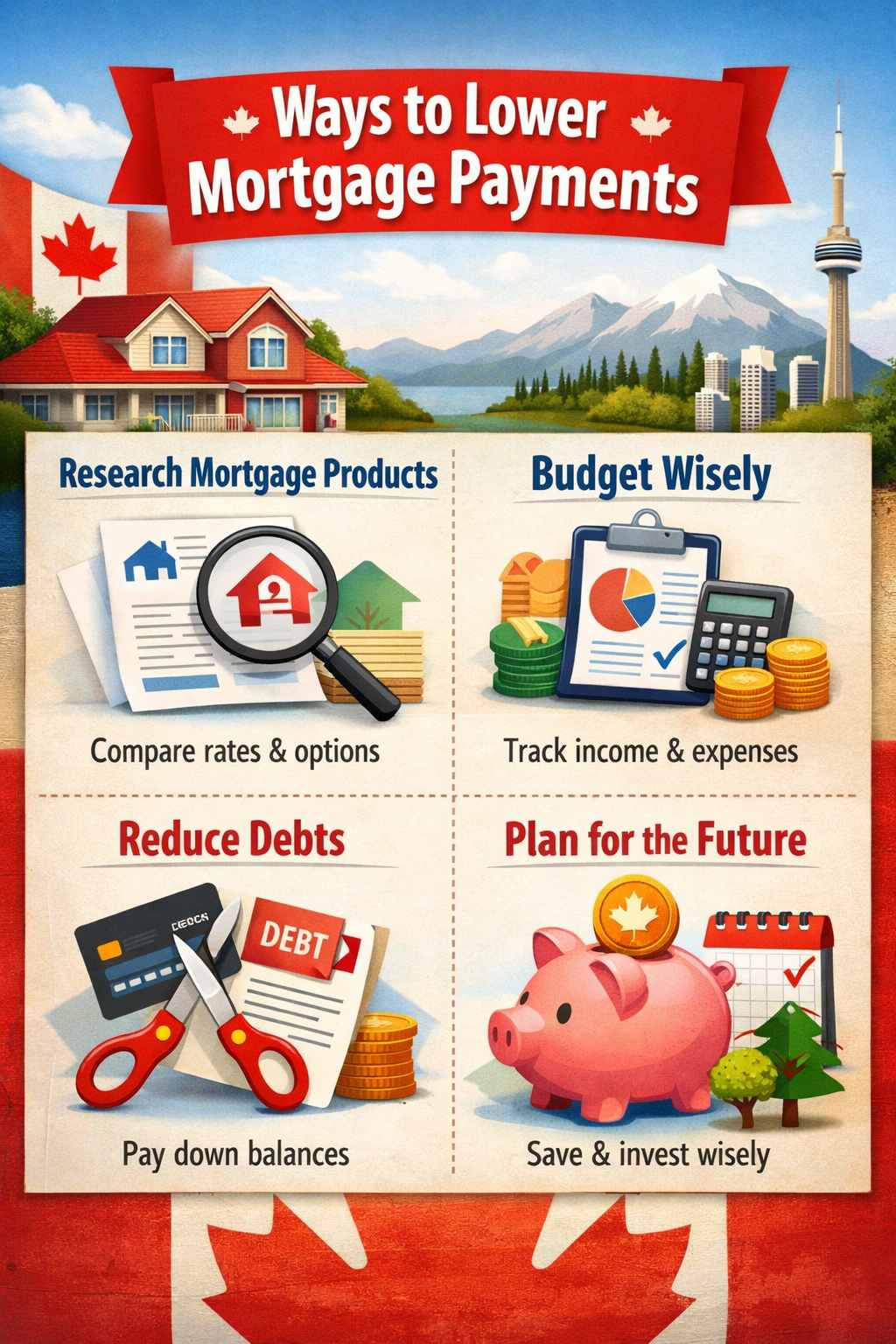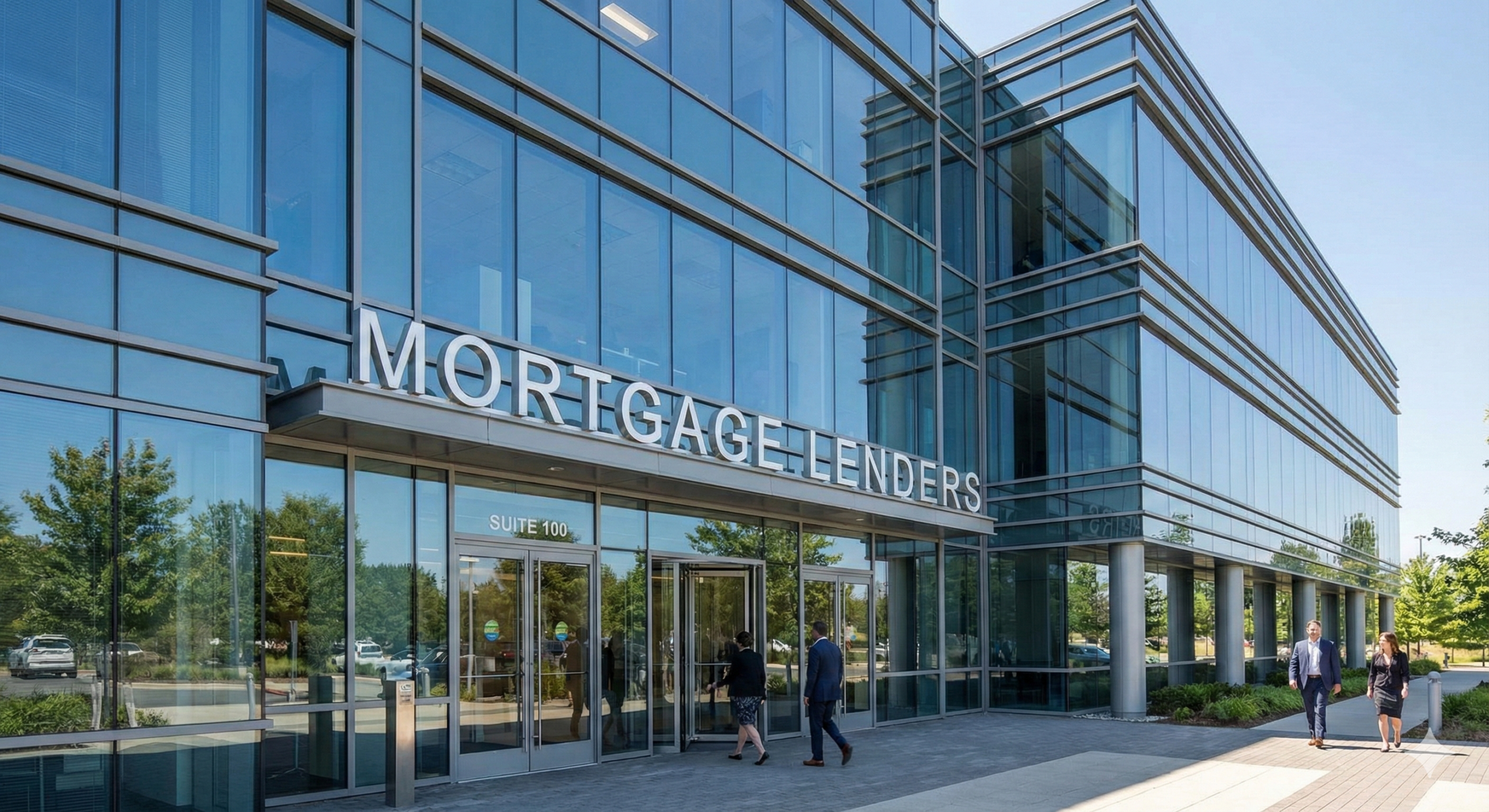Table of Contents
Toggle5 Powerful Reasons Home Equity Builds Wealth in Ontario
Discover 5 powerful reasons why your home equity is your greatest financial asset in Ontario. Learn how to build wealth, refinance, and secure your future.
Introduction: Unlocking the Hidden Value in Your Home
For most Ontarians, their home is not just a place to live — it’s their single largest investment. What many homeowners don’t realize is that sitting within that investment is an incredible source of potential wealth known as home equity.
In simple terms, home equity is the portion of your home that you truly “own.” It’s the difference between your home’s current market value and the remaining balance on your mortgage. For example, if your home is valued at $850,000 and your remaining mortgage balance is $500,000, your equity equals $350,000.
That $350,000 represents a powerful financial tool that can help you fund renovations, consolidate debt, invest in new opportunities, or prepare for retirement. When managed wisely, home equity is one of the safest and most effective ways to build long-term wealth in Ontario.
1. Home Equity Builds Wealth Through Appreciation
One of the most exciting aspects of owning property in Ontario is how quickly your equity can grow as home prices rise. Even when the market cools, long-term appreciation in cities such as Toronto, Durham, Barrie, and Hamilton has remained strong over decades.
Let’s say you purchased your home for $600,000 five years ago with a 20% down payment ($120,000). If your home is now worth $800,000, and you’ve paid down your mortgage by $75,000, your total equity is now $275,000 — more than double your initial investment.
That increase didn’t come from luck; it came from market appreciation and disciplined payments. It’s the kind of wealth growth that’s hard to replicate in other investment vehicles with comparable stability.
Key takeaway: Your home’s equity quietly grows in the background as your property appreciates and your mortgage balance shrinks — often adding hundreds of thousands to your net worth over time.
2. Use Home Equity to Borrow Smartly
Equity isn’t just something that grows passively; it’s something you can put to work. Canadian homeowners in Ontario can access their equity through several lending options designed to make borrowing smarter, not harder.
Common Ways to Access Equity:
-
Home Equity Line of Credit (HELOC):
A flexible, revolving line of credit secured against your home. You only pay interest on the amount you use — perfect for ongoing projects or unexpected expenses. -
Second Mortgage:
A lump-sum loan secured by your equity, often used for debt consolidation, renovations, or investments. -
Mortgage Refinance:
Replacing your existing mortgage with a new one that includes some of your home’s equity ideal for accessing larger sums at lower interest rates.
Each option comes with unique advantages. A HELOC offers flexibility, a second mortgage can provide short-term cash flow relief, and a refinance can streamline multiple debts into one manageable payment.
Tip from LendToday.ca: Work with a mortgage broker who can compare lender options, interest rates, and qualification rules across A-lenders, B-lenders, and private lenders. This ensures you access your equity efficiently — and responsibly.
3. Consolidate Debt and Rebuild Credit Using Home Equity
If you’re carrying high-interest debts, credit cards, payday loans, or lines of credit, your home’s equity can help you take control. Debt consolidation using home equity is one of the smartest financial moves Ontario homeowners can make.
Here’s how it works:
You refinance your mortgage or take out a home equity loan to pay off multiple debts at once. Instead of juggling five different payments at high interest rates (some as high as 19.99%), you roll them into one low-rate mortgage payment.
This can save you thousands of dollars annually while improving your credit utilization ratio, which in turn helps boost your credit score.
For example:
-
You owe $40,000 in unsecured debt at 19.99%.
-
You refinance and consolidate into your mortgage at 6.5%.
-
You save roughly $5,400 in interest every year — while reducing stress and improving cash flow.
Extra benefit: Lenders view consistent, timely mortgage payments as a positive sign of financial reliability. Over time, this can help you rebuild your credit, especially if you’re recovering from a consumer proposal or previous credit challenges.
4. Fund Home Renovations That Add Value
Home equity gives you the freedom to make strategic renovations that not only improve your lifestyle but also increase your property’s market value.
Whether you’re upgrading your kitchen, finishing a basement, or adding an income-generating suite, using your home’s equity can turn your property into a more valuable and functional asset.
Top ROI Renovations in Ontario (Average Value Added):
-
Kitchen remodel: 75–100% ROI
-
Bathroom upgrade: 60–80% ROI
-
Basement apartment: 70%+ ROI (plus rental income potential)
-
Energy-efficient improvements: Government rebates + long-term savings
Many homeowners in Durham Region and the GTA use a HELOC or refinance to complete renovations before selling or to build equity for the future.
Pro Tip: When you reinvest your equity into your home, it often compounds your wealth. A $30,000 renovation funded by equity could add $50,000 or more in property value.
5. Secure Long-Term Financial Stability and Freedom
Beyond borrowing or investing, home equity provides something invaluable: peace of mind. It’s your personal financial safety net — a source of funds that can be accessed during life’s unpredictable moments.
How Home Equity Can Support Your Future:
-
Emergency Fund: Access low-interest credit quickly when unexpected costs arise.
-
Education Support: Help your children or grandchildren with tuition or a down payment on their first home.
-
Retirement Planning: Supplement your income using a reverse mortgage or equity release program.
-
Investment Opportunities: Use your equity to invest in additional properties or diversified assets.
For retirees, tapping into home equity through a reverse mortgage can be life-changing. You can stay in your home, access tax-free funds, and eliminate monthly mortgage payments while retaining ownership.
To explore options like reverse mortgages and long-term refinancing, check out:
Second Mortgages and Private Lending Options
Understanding How Home Equity Grows in Ontario
Home equity growth depends on two main factors: paying down your mortgage and property appreciation.
-
Mortgage Paydown:
Every mortgage payment reduces your principal, which directly increases your equity. Accelerated biweekly payments or lump-sum prepayments can speed this up significantly. -
Appreciation:
Real estate markets in Ontario typically appreciate 3–5% annually over the long term, depending on region and property type.
Example:
You buy a home for $700,000 with 20% down ($140,000).
Five years later, your home is worth $850,000, and your mortgage balance drops to $480,000.
Your total equity is now $370,000, a gain of $230,000 in just half a decade.
This illustrates why homeownership remains one of the most effective wealth-building strategies in Canada.
6. Equity as a Tool for Opportunity — Not Just Ownership
Home equity isn’t just about comfort or security; it’s a financial lever. You can use it to fund a small business, expand real estate investments, or diversify into other assets like stocks or private lending.
Many Ontario investors are now leveraging home equity to purchase rental properties, generating passive income while the new property appreciates and builds its own equity.
Used wisely, this is how Canadians transform one home into a multi-property portfolio, turning homeownership into long-term wealth creation.
Risks and Responsible Equity Use
While home equity is a powerful tool, it should be managed responsibly. Borrowing too aggressively or failing to plan for rate changes can lead to unnecessary financial stress.
Here’s how to use equity safely:
-
Borrow only what you can comfortably repay.
-
Choose fixed rates if stability matters.
-
Avoid using home equity for depreciating purchases (like cars or vacations).
-
Always plan for interest rate fluctuations, especially if using a HELOC or variable-rate loan.
Before accessing your home equity, speak to a licensed mortgage broker who understands Ontario’s lending landscape and can match you with a solution that fits your goals.
FAQ: Home Equity in Ontario
1. How much equity do I need to borrow?
Most lenders require you to retain at least 20% equity in your home after borrowing. For example, if your home is worth $800,000, you could access up to 80% of that value ($640,000) minus your current mortgage balance.
2. Can I access equity with bad credit?
Yes — even if your credit isn’t perfect, alternative or private lenders can often help you access your equity. The rates may be higher, but the flexibility can be life-changing for those rebuilding credit.
3. Does using equity affect my mortgage term?
If you refinance, your new mortgage will likely reset your term, but you may secure a lower rate or better structure that offsets any cost.
4. Is home equity taxable in Canada?
No — your home equity isn’t taxed when you access it through a refinance or HELOC. However, if you sell an investment property, capital gains tax may apply.
Conclusion: Turn Your Home Equity into a Powerful Financial Asset
Your home equity is more than just the portion of your house you’ve paid off — it’s a gateway to financial freedom, flexibility, and opportunity.
For Ontario homeowners, it can help consolidate debt, fund renovations, build wealth, or provide a cushion for retirement. When used wisely, equity transforms your home from a simple place of residence into a financial machine.
At LendToday.ca, we specialize in helping Canadians unlock the full potential of their home equity. Whether you’re looking to refinance, access a HELOC, or plan your next financial move, our expert team can guide you through every step.
Ready to explore your home equity options?
Contact LendToday.ca today and discover how your home can help you achieve your financial goals.
- Shocking Reasons Your Mortgage Company Could Cancel or Call Your Mortgage - January 24, 2026
- Costly and Important Facts About a Writ of Execution: What It Means and How to Clear It - January 22, 2026
- 7 Great Ways to Reduce Your Mortgage Payments Without Sacrificing Your Goals - January 19, 2026






